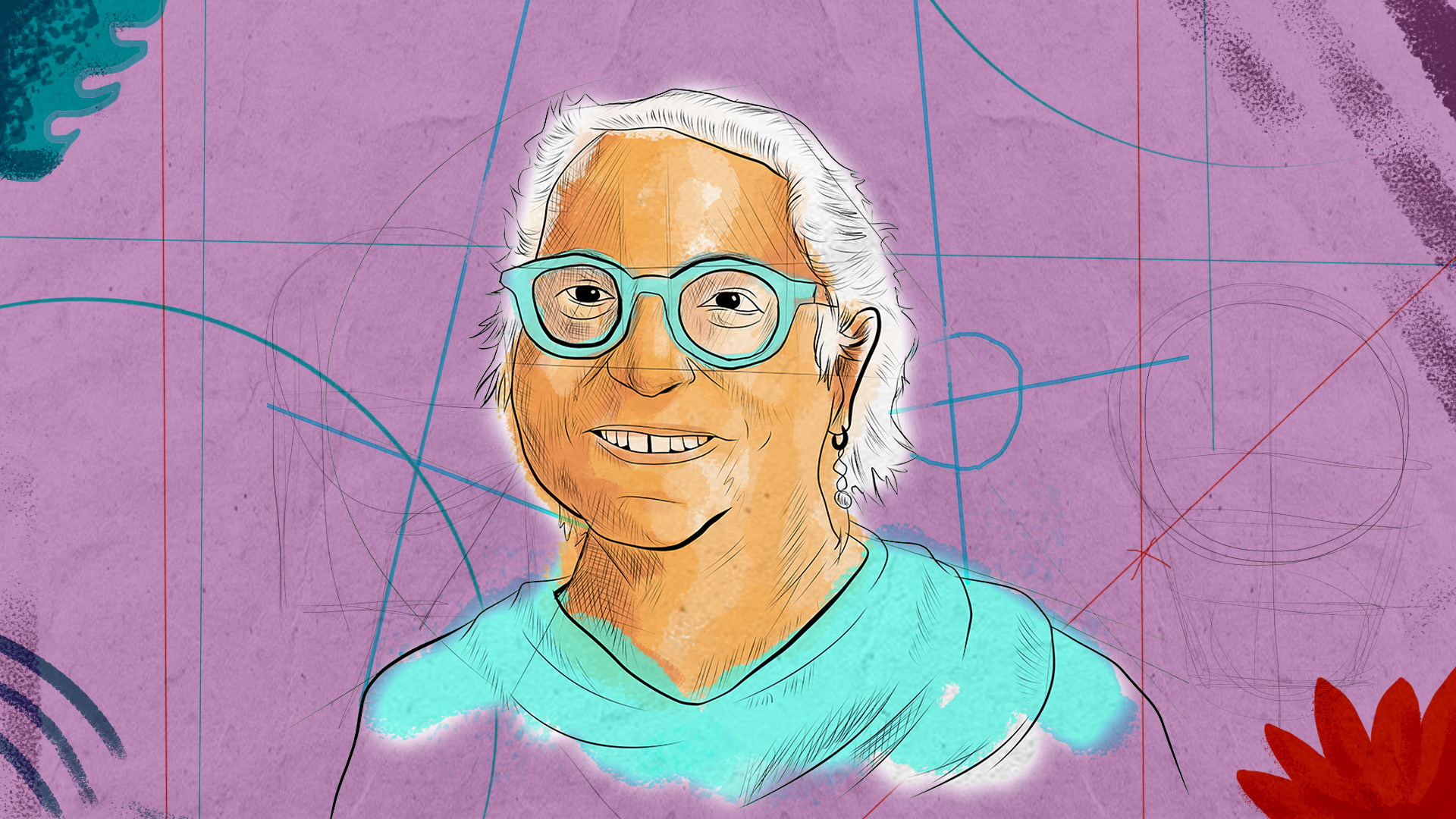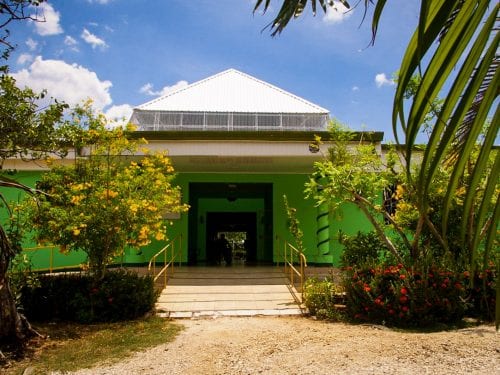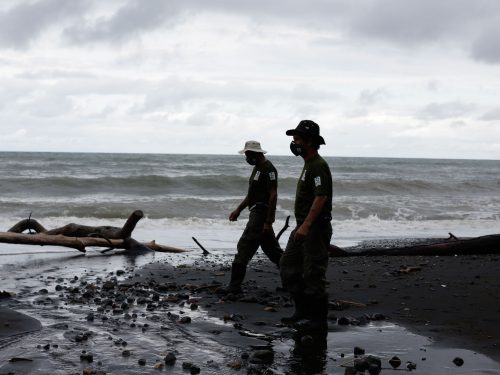
The heat in Guanacaste’s dry forest goes straight to the bones. The deeper you go into the plain that seems withered, the air you breath gets hotter and hotter. Your skin begins to sweat and your hair involuntarily curls due to the environment’s humidity. For Jennifer Powers, that is synonymous with a good day.
Jennifer is an American biologist and ecologist who has invested nearly 30 of her 53 years of life in conserving the ecosystems of Liberia and La Cruz. In the field, submerged among the species that the dry forest hides, is where she feels most alive.
In the 1990s, she came to Costa Rica as part of a group of biologists investigating the ecosystems in the north of the country. Among the dusty roads and the noise of the cicadas in the forest, she fell in love with what is now her second home.
There, she decided that she would try to find the answers to the mysteries of the dry climate. It hasn’t been easy. For every new thing that her team discovers, more questions arise. It’s that constant cycle of the need for information that most attracts her to the region.
The dry forest is such a fascinating ecosystem. It has these large gredients of rainfall, and then it doesn’t rain at all for a while. The types of trees, and animals that you can find there are so different from the rest of the world. There’s no other place like this,” Powers said in an interview via Zoom, as she travels around Brazil studying that country’s dry ecosystems on a research grant she won.
During the call, she shows several drawings of Brazilian ecosystems that she has come across during the exploration. Whenever she can, she draws the forests that she studies. That helps her to immortalize vegetation and animals that she finds.
A big thanks to @tropicalstudies for inviting me to be a resource person for the spectacular Parque Nacional Palo Verde, Costa Rica. It was an amazing course and I left with only one mosquito bite! pic.twitter.com/JT5uvsw7xP
— Dr. Jennifer Powers (@jennifer_pow) February 22, 2022
Jennifer has a constant smile and a pleasant voice. When she talks about Costa Rica or her research, her eyes light up. “Everything I’m learning makes me want to go back to Guanacaste and research some more,” she said, laughing.
Fight Climate Effects
Jennifer divides her time between research in Costa Rica and teaching biology at the University of Minnesota. In her role as a professor, she arranges for her students’ fieldwork to be in Guanacaste, so that more people and future professionals turn their attention to the importance of the ecosystems in this region.
In the country, she also founded The Powers Lab, a small scientific station near the community of El Triunfo, between La Cruz and Liberia, focused on closely studying the behavior of the forest that attracted her so much in her youth.
The lab team is made up of Costa Ricans from the community. In addition, part of their job is to have in-depth conversations with members of the surrounding communities about conservation and climate change issues, so that they become the ones who mainly contribute to mitigating the effects within their environments.
In the laboratory, the team investigates topics such as the relationship between climate change and plant growth in dry ecosystems, the way that natural disasters impact soil types, and the use of new forms of agriculture in favor of environmental conservation in Guanacaste.
Off to sample a longterm wood decomposition experiment that @shroominn and I set up 11 years ago! 8 species, 2 sites, and too many replicate logs… here we are setting it up 11 years ago. Thanks @ACGuanacaste for supporting longterm research. pic.twitter.com/QilJ99tnvv
— Dr. Jennifer Powers (@jennifer_pow) July 26, 2021
Jennifer, for example, investigated the direct impact of severe droughts on dry forest trees, such as the El Niño phenomenon in 2015. In the process, she discovered that during droughts, trees face growth problems and this can cause the species to die.
[Jennifer’s] research takes into account that the community needs to know how climate change affects them. She doesn’t come to do her research and then leave. She takes into account the role of people in conservation,” said David Perez, one of the coordinators of Jennifer’s research project in Guanacaste.
David, who is also a biologist, is probably her right-hand man in Costa Rica and the person in charge of research when she isn’t in the country. David said that after meeting on a field trip within the Guanacaste Conservation Area (ACG for the Spanish acronym), Jennifer sought him out for three months so that they could work together.
“She’s like that, persistent. It seemed very important to her to add a national perspective to her research,” he recalled.
Supporting Women in Science
She remembers that a few decades ago men were the only ones who worked in science and technology. Jennifer feels fortunate, because there were women before her who fought and opened the way for women scientists to work in those fields as well. However, her journey hasn’t been easy either.
She knows that in areas like science, women suffer discrimination based on their gender, nationality, race or age. That’s why she said she makes the places where she works safe places for the women who come after her.
It’s not easy to work in a male-dominated place, of course, but I think that by having the power to be a teacher, I can set the culture that I want to experience” she said.
Damaris Pereira, a research assistant on Jennifer’s project who is from Liberia, confirmed this. “Jennifer always supports us so that we women are also there in the field, doing research,” she said.
Jennifer tries to break down the myths of the stereotypes that women in research experience. Her love of fieldwork is just one way to challenge what others believe to be true. Her desire to continue learning about and investigating the mysteries of her second home is like a revolution, while she encourages the people of Guanacaste to accompany her on that journey.
This profile of Jennifer Powers was put together from interviews with Jennifer Powers, David Perez and Damarys Pereira, members of Jennifer’s research group in Costa Rica, and research published by Powers on the dry forest.







Comments